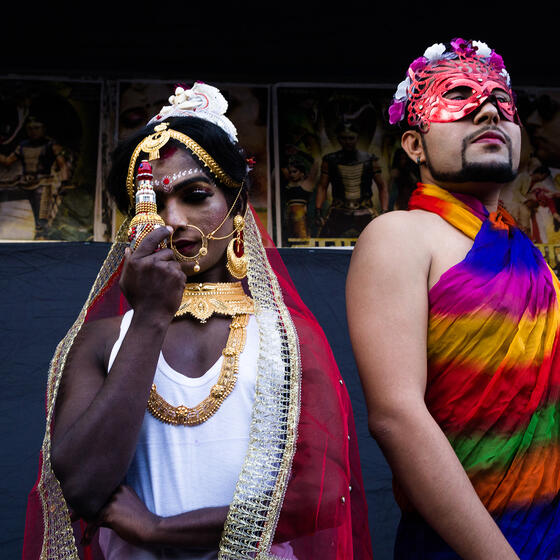Meet the pioneering outdoor enthusiasts breaking down invisible barriers and enabling a deeper connection to nature – and to each other
09 January, 2023
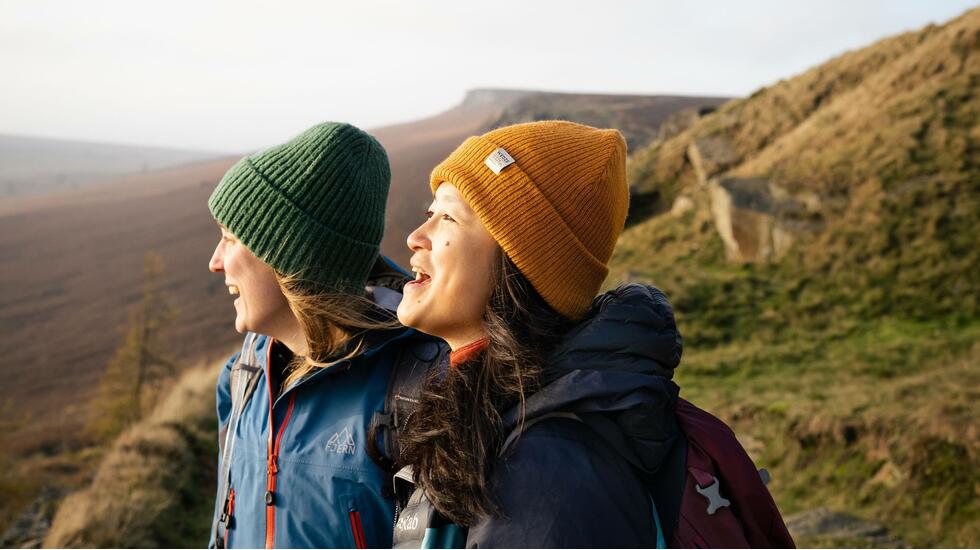
We’re
ambling through dew-coated fields towards Stanage Edge, a
350-million-year-old gritstone escarpment in the Peak District.
There are 11 of us, and it’s one of those crisp autumn days when
mist clings to the surrounding hills; when cobwebs strewn between
branches glisten in the sunlight. Staring down at a map, we gather
round and discuss the best route to take. The few hours prior to
this were spent learning how to interpret the many symbols, grids
and scales of a map, so that we’re now able to better identify
relevant landmarks and locations, and the brown lines that bleed
across the page no longer look like bundles of unfurled ribbon, but
tell-tale contours instead.
Strangers at first, we’ve been brought together by a
collaboration between Bird Outdoors, a women-focused outdoors store and
community that hosts monthly hikes and cycling days, and Harriet
MacMillan, the founder of Navigation with Harriet, who’s a qualified mountain
leader running a range of adventure courses for underrepresented
groups. Part-funded by the YHA, it’s an introduction to navigation
and route planning that’s geared specifically towards women, trans
and non-binary folk, in a bid to improve skills, boost confidence
and increase representation of minorities in the outdoors.
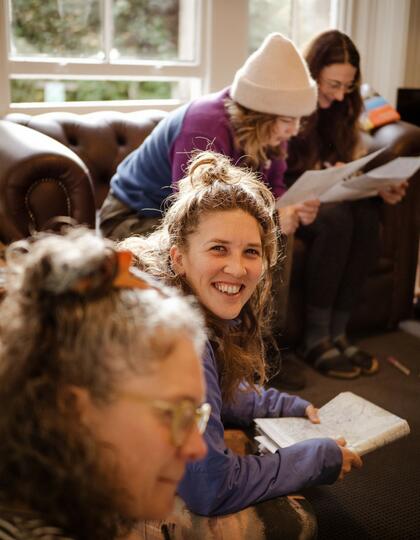
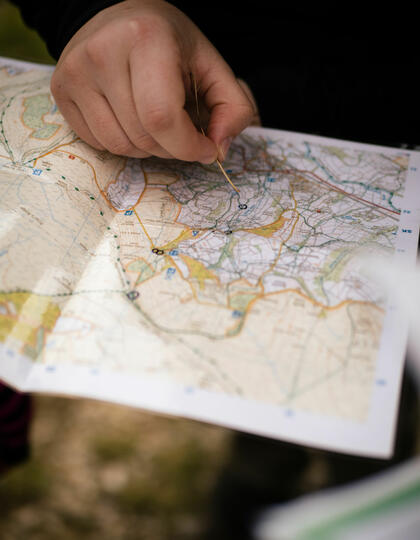
Harriet MacMillan, founder of Navigation with Harriet, runs
adventure courses for underrepresented groups.
Because, while the majority are blissfully unaware of the
invisible barriers that prevent people from accessing nature,
obstacles quietly exist in abundance. Cost, proximity to rural
areas, transport, and a narrative that historically places white
middle-class men at the centre of outdoor spaces and sports (to the
detriment of everyone else) are just some of the obstacles that
must be overcome. It’s only in recent years that we’ve begun to
dissect and, very slowly, dismantle those preconceived ideas. Now,
a slew of targeted groups are paving the way for everyone to forge
closer connections to the wilder environments that lie beyond the
boundaries of the UK’s towns and cities.
The current surge in the number of people wanting to spend time in
nature has mostly been attributed to the pandemic and a reaction to
being confined at home for the best part of two years. But for
some, the yearning for broader horizons runs deeper. Ailish Breen
(whose pronouns are they/them) set up Queer Out
Here, a group offering day trips and weekend breaks for
LGBTQIA+ people, at the start of 2020. The aim was to share their
love of the outdoors with their community while also challenging
pre-existing notions about queer spaces, which tend to revolve
around clubs and bars. “Traditionally, that’s where queer people
feel safe, accepted and free to express themselves,” Breen
explains. “And that’s a wonderful outlet to have. But spending time
outdoors is one of the most powerful resources we have at our
disposal to be able to build resilience, restore ourselves and
improve wellbeing.”
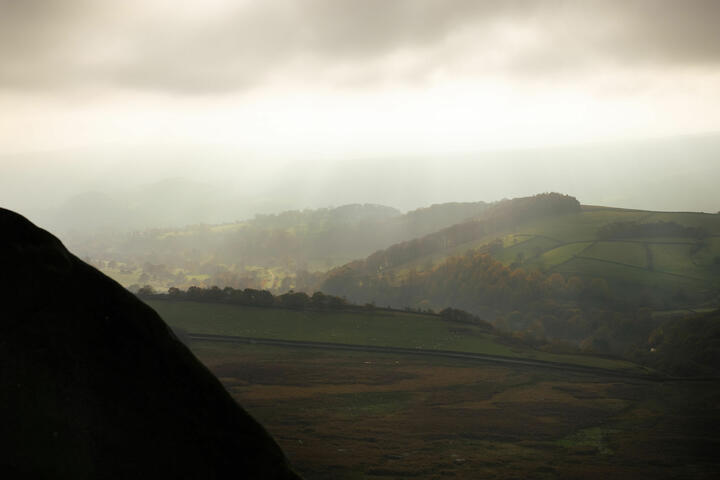
Underpresented groups feel excluded from spaces such as the
Peak District.
For the LGBTQIA+ community, addressing these factors
with a positive mindset is particularly pertinent. “Rates of
depression, suicide, alcoholism and drug abuse are much higher for
us,” Breen adds. “And so we need to take care of ourselves. Getting
outside connects you to yourself, to each other and to the world
around you, and it reminds us that we’re part of something
bigger.”
There’s plenty of research to back up the idea that nature
improves both physical and mental health, but, despite its
omnipresence, that doesn’t mean it’s available on tap. “I struggle
when people say things like ‘the outdoors is for everyone’, because
it disguises the fact that not everyone has access to green space,
because of where they live, their socioeconomic background or lack
of experience,” Breen says. “That’s why being in a group of people
like you is so validating – it makes you feel a sense of belonging
and that’s incredibly powerful. It can be transformative for people
in feeling secure and safe in their identity.”
Phil Young, co-founder of Black Trail
Runners, a group seeking to increase the inclusion,
participation and representation of Black people in trail running,
agrees. “There is a sense of confidence and security in turning up
to an event alongside someone you share an affinity and cultural
nuances with,” he explains. “Being part of a community is really
changing the game because it means people who otherwise wouldn’t
have left the city, who might be afraid of running in the woods,
can now do a sport that they love.”
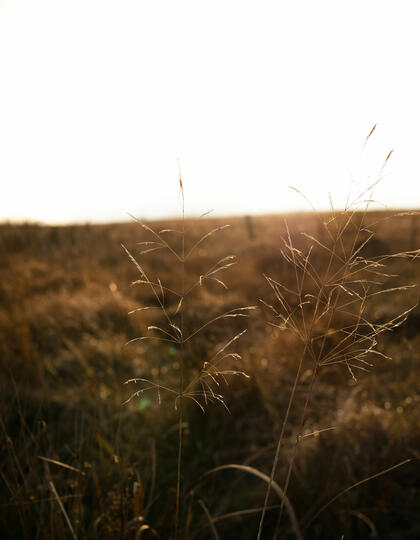
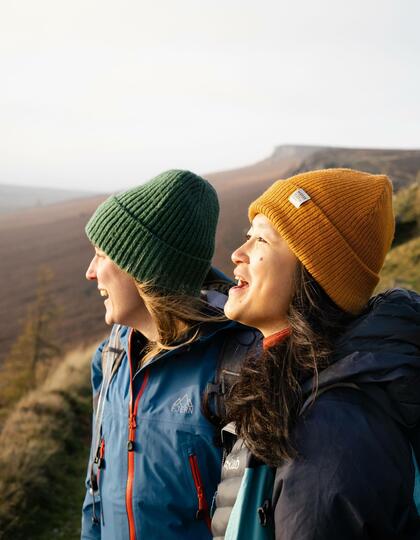
Organised events offer a sense of security and
confidence.
Young’s personal experience served as the catalyst for starting
Black Trail Runners. Having travelled to Chamonix in France to
compete in the world-famous UTMB Mont-Blanc, a 171km race that
spans valleys and snow-capped peaks, he was surprised to discover
he was the only person of colour among thousands of runners on the
start line. Returning home, he vowed to explore the reasons behind
that void. His quest led him to meet people who shared the same
mindset and joy when running on lush, winding trails, and discover
a collective determination to raise barriers and highlight the
benefits of being outdoors for communities beyond the typical male,
white adventure bracket.
“Having access to nature is important,” he says. “And a lot of
the time we’ve either forgotten that fact, we’ve not been told it
in the first place or we don’t have access to it – and that means
we don’t understand why we need to go there. But it’s unnatural for
so many people to live in cities and so we’ve lost our emotional
attachment to natural spaces. It’s easy to get wrapped up in the
rat race, but when you’re on the trails, you’re able to let go of
all that and life makes a lot more sense.”
You never saw someone wearing a headscarf or a niqab out in the hills
Mountain and expedition leader Amira Patel discovered that, too,
while scaling craggy rock faces and, with the space and time to
think clearly, she realised that the power of nature could connect
her with others. She went on to found The
Wanderlust Women, a hiking and adventure group that encourages
Muslim women to explore beyond urban boundaries and, further, to
challenge what’s historically been expected of them.
“Amira wanted to inspire as many women from ethnic backgrounds
as possible,” explains Shareen Abbas, a leader at The Wanderlust
Women. “And to encourage people who aren’t typically exposed to the
outdoors – to show them that if she can do it, then they can, too.
In the past, that representation wasn’t really there – you never
saw someone wearing a headscarf or a niqab out in the hills. We
don’t look like typical hikers, so being with women who understand
the struggle over simple things, like what to wear, what material
to get and where to buy certain clothing, is nice.”
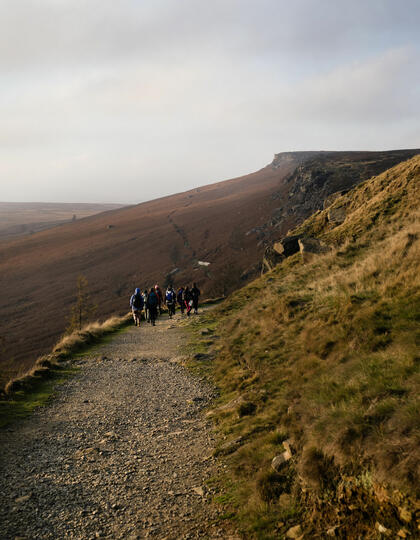
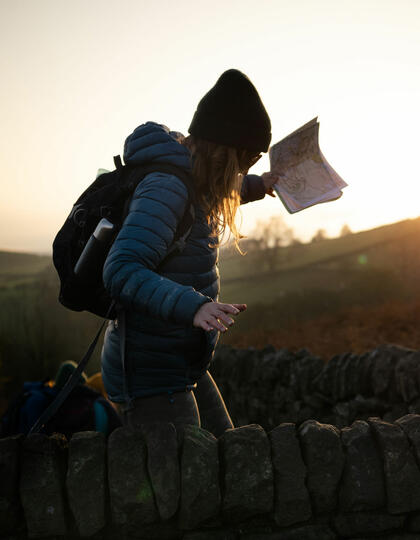
Inclusive adventure groups provide the opportunity to
reestablish an attachment to natural spaces.
More than that, the excursions, both in the UK and further
afield, provide a safe space for Muslim women to explore identities
and push limits. “Some of our participants are single mothers, or
have health problems,” Abbas adds. “And being outside takes people
away from that. It’s like starting from afresh really, and that can
make you feel so free.”
She describes how a swimming retreat in the Lake District
quickly evolved into what felt more like a sisterhood. “We stayed
in a bothy, and for lots of us, that was our first experience of
accommodation like that,” she says. “And it grew from there. Now we
all encourage each other and we feel less alone because suddenly
we’re not the only ones in the countryside who look a bit
different.”
“Sometimes, we don’t realise how much it means to women to just
be there in that space,” Abbas concludes. “On the first day, [the
group] can be quiet and timid, but slowly you see them start to
come out of their shells. Our aim is to keep pushing for
representation and diversity precisely for that reason. We deserve
this place in the outdoors.”
